Did you know?
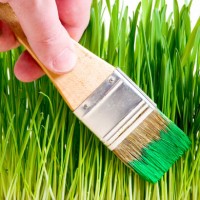
Greenwashing
Greenwashing is a term used to U.S. products with a green image charge. The product has received a ”green washing” or ”greenwash” to appeal toc onsumers who care about ecology, nature and its natural resources. This”green” is a call to sell more and does not imply a real concern with the environment. Stay tuned to see the difference between a product that is really an ecological product and the one which transmits this image! Source: GreenEco Communities
Leia mais / Read more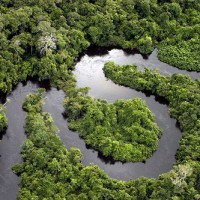
What is a biome?
The word biome is formed from two Greek words: bios = life and oma = group or mass. The biome as a biological unit which is a type of vegetation, climate, soil and altitude of that specific place. The word was first used with this meaning by the American ecologist Clements in 1916. He said the definition for biome would be, ”a larger region, classified according to the predominant vegetation and characterized by adaptations of organisms in this environment.” The biomes can be divided into two major types: water and land and can be of [...]
Leia mais / Read more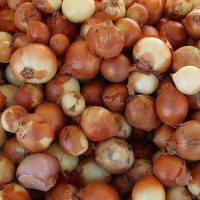
What is Biomass? And what is Bioenergy?
Biomass > Bio = life; mass = matter. Biomass is the entire set of living organisms as plants, trees, food and all living beings including us human beings. Biomass can generate energy by fermentation, as with anaerobic digesters. It can also generate energy by combustion, such as wood. The energy produced by biomass is called bioenergy. In Brazil, we produce biomass with sugar cane, palm oil and the biogas pig with waste produced by raising pigs. In [...]
Leia mais / Read more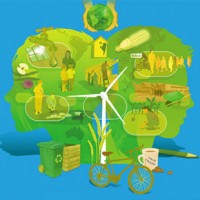
What is sustainable development?
In a nutshell: it is the development that meets today’s needs without preventing people to satisfy their needs in the future. The original definition appeared in Brutland report Our Common Future: “Sustainable development is what meets the needs of the present without compromising the ability of future generationssatisfazerm their own needs.” And what are these needs? The needs are great and every day, we may findwe need more things to live. The basic [...]
Leia mais / Read more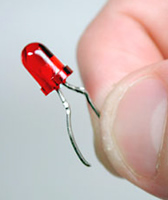
What is LED?
LED or Light Emitting Diode is the technology that uses diodes, a type of semiconductor or a material that has the ability to conduct electrical current. LEDs provide us with many services such as transmitting information from remote controls, forming the numbers on digital clocks or digital images on a jumbo television screen and they can also illuminate a traffic light. LEDs are tiny light bulbs that differ from ordinary incandescent bulbs because [...]
Leia mais / Read more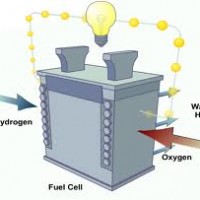
What is a fuel cell?
A fuel cell is an electrochemical energy converter equipment capable of producing electricity by combining a supply of fuel, such as liquid hydrogen and an oxidizing agent, such as liquid oxygen. When the two elements combine within the cell, they are converted into water and electricity are produced continuously as long as the two elements [...]
Leia mais / Read more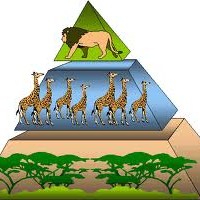
What is a food chain?
All living things get energy from their food so that they can move and grow. Food chains interlink several species that live in the same environment. Each species is linked to other by a basic need: food. One species can serve as food to other. It is the food supplies the energy that keep the [...]
Leia mais / Read more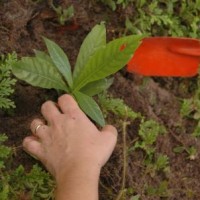
What is anthropic action?
To understand what is the anthropic action we check the word’s origin from the Greek anthropos, which means “man.” Anthropic action is the activity done by humans, male or female. The phrase became known because of the environment problem. It is mostly used in technical or scientific wor about the environmental issue. Planting a tree or cutting down a tree is an anthropic action because it was made by [...]
Leia mais / Read more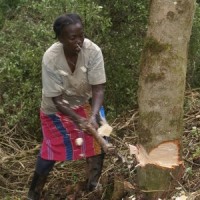
What is environmental impact?
Impact is the effect of an action that has a set of results. An impact implies hitting with strength. Environmental impact means the result of a modification in environment. Who can do that? The human beings. we are the only to have power to act on the environment. The animals do not interfere with natural cycles, but adapt to them. Unlike animals, humans have caused many changes in the environment since we [...]
Leia mais / Read more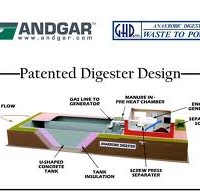
What’s a digester?
Digester is a device that does the processing or “digest” of organic material. This process is known as “anaerobic digestion” (without air or oxygen) micro organisms that decompose organic matter. The result is energy generated from gas or biogas. This “biogas” is composed of a mixture of gases, mainly methane and can replace oil or natural gas that [...]
Leia mais / Read more